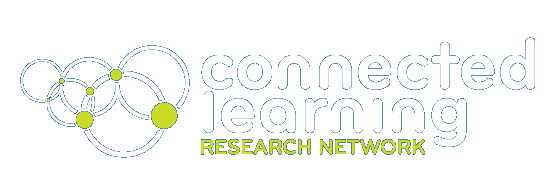There is a growing disconnect between the interests and everyday practices of our nation’s youth and formal schooling’s approaches to engaging youth in rigorous, meaningful and relevant learning. In particular, despite the significance of youth practices with digital media, this activity remains largely outside of academic environments. Of concern, there are social and cognitive, as well as personal, institutional, and economic consequences to disconnected learning. Today’s youth move across a range of contexts and produce artifacts, increasingly through digital means, that reflect the intercultural, hybrid, and multimodal practices of which they are part. These repertoires developed across the ecologies of interest and everyday life should be cultivated as an important dimension to learning and civic participation.
Schools today rely primarily on “vertical” views of competence and expertise that suggest that learning moves toward higher levels of mastery or performance in a domain. However, current sociocultural views of learning help us understand that learning and development must ALSO be viewed as “horizontal” movement across activities, domains, disciplinary terrains, and ecologies. In other words, transformative learning involves shifts between and across new combinations of contexts and tools that can be leveraged across contexts and domains of learning. From a learning perspective, the repertoires and expertise people develop across everyday and school-based ecologies are referred to as horizontal and vertical forms of learning, respectively.
In this session, we propose to elaborate a set of Connected Learning design principles organized around a range of media practices that help to connect school, home, and youth culture. We share a robust framework for disciplinary learning to support the development of toolkits that have utility across tasks, purposes, disciplinary boundaries, learning environments and future-oriented pathways and identities. Our goal is to advance an approach to learning that leverages youths’ repertoires toward consequential learning and productive pathways that have resonance for youths’ life trajectories. Designing for connected and consequential learning requires a new imagination about what kinds of tools and practices provide the context and supports for new forms of learning. We argue that new media technologies can help open up opportunities for connecting learning across range of ecologies. Specifically, the set of papers elaborate new models of connected learning, known as syncretic approaches to learning (Gutierrez, 2008, Gutierrez, 2012). Connected and syncretic learning models seek to address, if not rupture the gap between in-school and out-of-school learning by leveraging youths’ interests and repertoires of practice across nodes of interests and influence, including peer culture and academic domains of inquiry. This session will advance a theory of syncretic approaches to connected learning and will draw on relevant studies of using syncretic approaches to design for more robust learning in both in and out of school spaces, including disciplinary learning. We will focus on building new media literacies and syncretic learning in science, literacy, and computational thinking to exemplify how syncretic learning—learning in which the everyday and school-based are reorganized, fused and leveraged toward more relevant and powerful learning across ecologies and boundaries, both disciplinary and the everyday.










